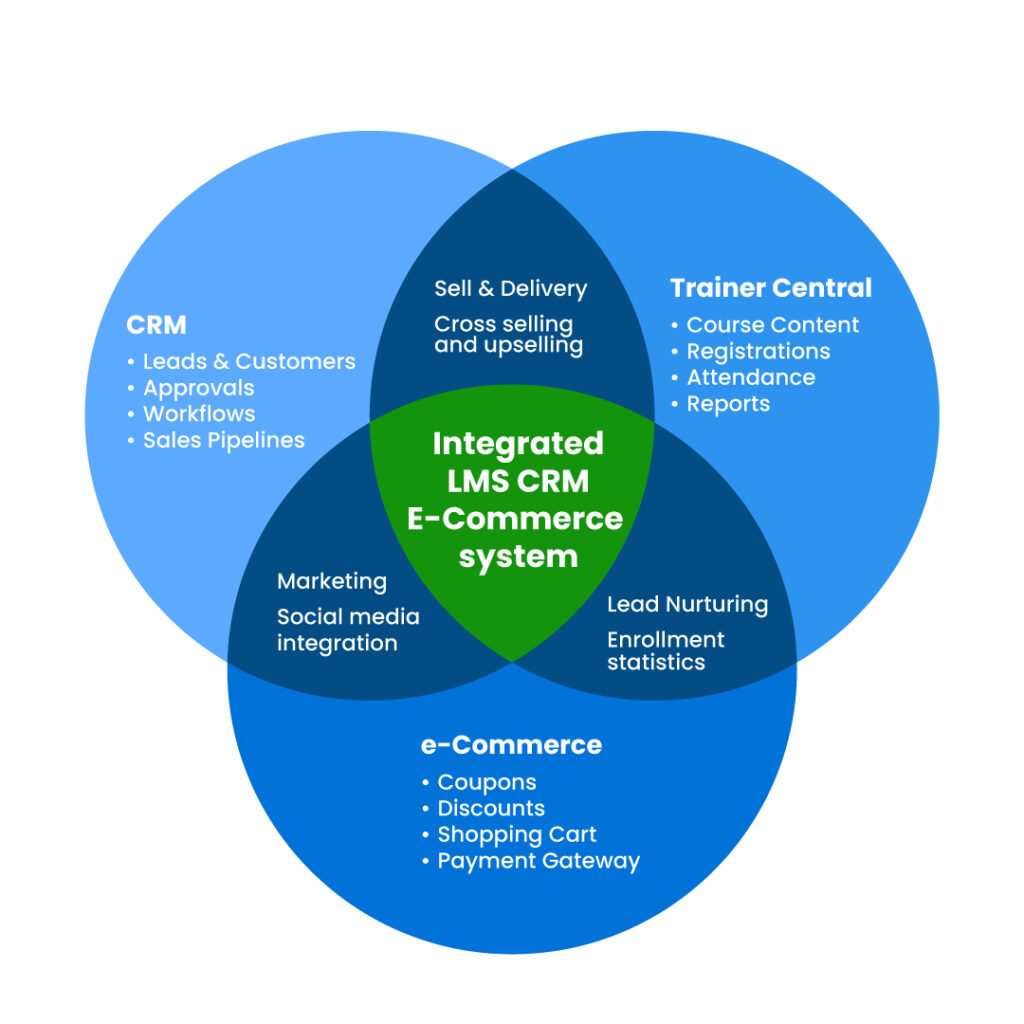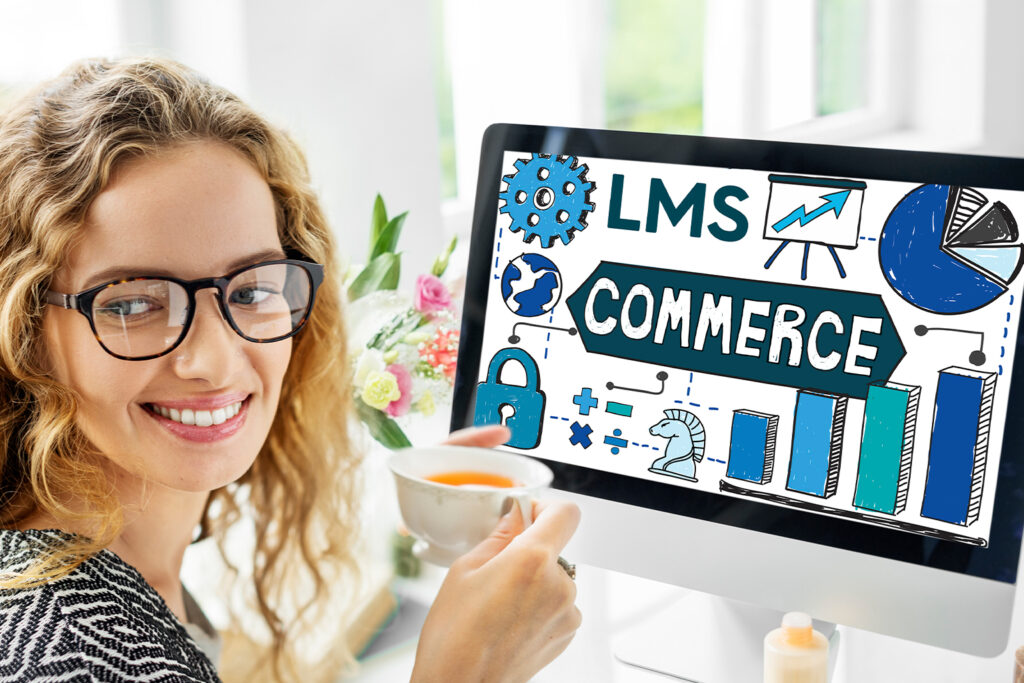Scenario 1:
Your e-Learning business, offering an array of online courses and certifications, uses a dedicated payment processing system on your website for secure transactions.
Your current need is a registration system that not only gathers information about learners but also manages customer payments and allows access to the purchased courses and materials.
Solution: A Learning Management system integrated with eCommerce.
Learn more about how an LMS integrated with eCommerce will be an effective means of monetizing your educational content and reaching a broader audience by providing learners with a seamless, and secure e-learning experience.
See how you can extend the reach of your educational offerings and drive revenue at the same time by scheduling a free 30’ consultation call with us.

Scenario 2:
Your business is an e-Learning organization offering courses or certifications online. You have designed a LMS to facilitate the administration, delivery, and management of educational and training content.
Business is able to create, deliver training on LMS and all payments tracking on the e-Commerce system.
But current LMS lacks features to track sales opportunities and deals, detailed contact management features, including contact history and notes.
Your sales team is currently facing challenges in initiating cross-selling and upselling strategies. Additionally, they are unable to utilize advanced marketing functions like managing referrals or addressing customer dropouts.
Solution: You require the integration of a CRM with your existing LMS/e-Commerce setup.
This CRM will provide you with a suite of tools to oversee your entire sales pipeline, from generating leads to closing deals.
Moreover, it will also enable you to efficiently track and manage all forms of customer interactions, including inquiries, support requests, and the history of your communications.
In addition, CRM systems often have built-in email marketing and campaign management tools for marketing to and engaging with customers. Learn more about how your current Learner data in your LMS system can be used to reap maximum benefits by taking a look at our case study for Encompass.
By integrating with a CRM system provide in-depth customer data analytics, and understand customer behavior and preferences.
Scenario 3:
You’re looking to transition from traditional course learning to an online e learning format, or to offer courses to external entities like clients, partners, customers, or vendors.
For this, you need a system capable of handling your existing course materials in digital formats.
This includes multimedia elements, interactive quizzes, simulations, and engaging activities for active learning.
Additionally, the system should support advanced communication tools like discussion forums, chat, or email to foster learner interaction and provide support.
Solution: Organizations and educational institutions can expand their reach without the limitations of physical locations and geographical constraint by using LMS.
LMS platforms can accommodate a large number of learners simultaneously, and allow continuous learning, as learners can access resources and courses as needed to stay updated on industry trends and skills.
E-learning using LMS allows learners to access educational content from anywhere, at any time, promoting flexibility and accessibility for remote or busy learners.
In addition, transitioning from traditional course learning to online e learning requires careful planning, content development, and ongoing support.
With the right design, integration plan and tools, you can create an effective and engaging e-learning experience for your learners.
Contact us for a free 30′ consultation to learn how LMS platforms provide insights through data and analytics, allowing organizations to make data-driven decisions and continuously improve learning experiences.
Scenario 4:
You are looking into a custom solution for an extended enterprise learning infrastructure or looking at a hybrid traditional and Learning Management System (LMS) system as an innovative approach that involves classroom teaching and online learning?
Solution: This method combines the strengths of both traditional classroom instruction and e-learning.
It allows learners to concentrate on areas requiring additional support through online resources, while utilizing classroom time for more collaborative and interactive activities.
Benefits of partnering with CRM Experts for a custom solution:
- Tailored Learning Experience: A custom LMS allows you to design a learning experience that aligns perfectly with your organization’s goals and requirements.
- Scalability: Custom LMS systems can be built to scale with your organization’s growth, add new features, expand user capacity, and adapt the system as your needs evolve.
- Integration: Tailored LMS systems can seamlessly integrate with your CRM or payment Gateway to streamline data management.
- Unique Features and Functionality: Incorporating unique features and functionalities to address specific requirements, such as certification management, compliance tracking, by taking control over the design, development, and functionality. It allows you to create a system that reflects your brand identity and educational objectives.
- Cost Savings: While custom development may have an initial investment, it can lead to cost savings in the long run by eliminating licensing fees, reducing unnecessary features, and improving efficiency.
- Unique Branding: Your custom LMS can reflect your organization’s branding, creating a consistent and professional image for your learners.
Schedule a 30’ free consultation call with us.





